Hakeem Hussain: Mum jailed over son's asthma attack death
- Published
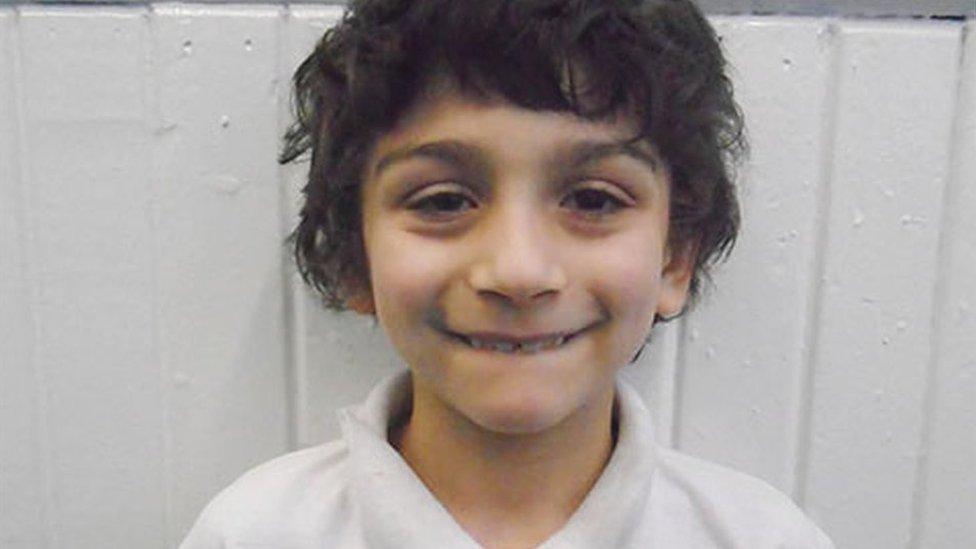
The body of Hakeem Hussain was found in a freezing garden in November 2017
The mother of a boy found dead in a freezing garden after an asthma attack has been jailed for 20 years.
Seven-year-old Hakeem Hussain was found lifeless at the home in Birmingham in November 2017.
A court heard Laura Heath had prioritised her drug addiction over caring for him.
The 40-year-old was convicted of manslaughter by gross negligence and had also admitted four counts of child cruelty at Coventry Crown Court.
The trial heard Hakeem, who was known to authorities, died alone and "gasping for air" in the garden of the property where his mother was staying.
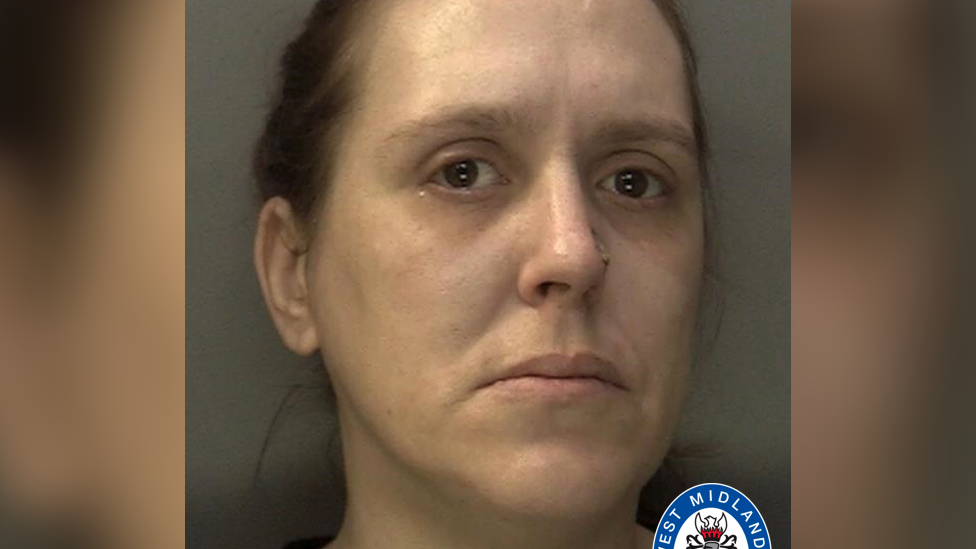
Laura Heath's drug addiction had got worse in the months leading up to Hakeem's death, the trial heard
Her drug addiction had got worse in the months leading up to his death, to the extent she was paying £55 a day for mainly heroin and crack cocaine, paid for partly through sex work.
The jury was also told she had repurposed one of his inhalers as a makeshift crack pipe.
On the night Hakeem had died, Heath had smoked heroin before passing out in the same bed as him.
Probably exacerbated by the effects of second-hand smoke, Hakeem at some point in the night suffered an asthma attack.
Unable to wake his mother, it is thought he then went outside for fresh air, where he was found the next morning, still clutching a leaf.
'Squalor, chaos and tragedy'
Passing sentence on Heath, Mr Justice Dove said Hakeem's death was the result of Heath's "catastrophic and deplorable" parenting.
Hakeem's death had occurred as her life "entered a drug-fuelled downward spiral into squalor, chaos and tragedy," he said.

The boy lived in squalid and chaotic conditions with his mother
"It is clear that in his tragically short life [Hakeem] had been an inspiration of happiness and affection for people who knew him," Mr Justice Dove said.
"All of that potential for a wonderful and fulfilling life was cut short, extinguished as he collapsed on his own suffocating, clutching a leaf in the garden.
"The truth is that Hakeem died as a result of your deplorable negligence."
His death was "needless, tragic and a result of your abject failure as his mother", the judge said.
A post-mortem examination confirmed Hakeem died of uncontrolled asthma, and toxicology evidence proved he had inhaled tobacco smoke in the hours before his death.
A hair sample showed he had also ingested heroin, crack cocaine and cannabis.
Defence QC Isabella Forshall said Heath's level of drug addiction, formed in her teenage years, amounted to a recognised mental condition.
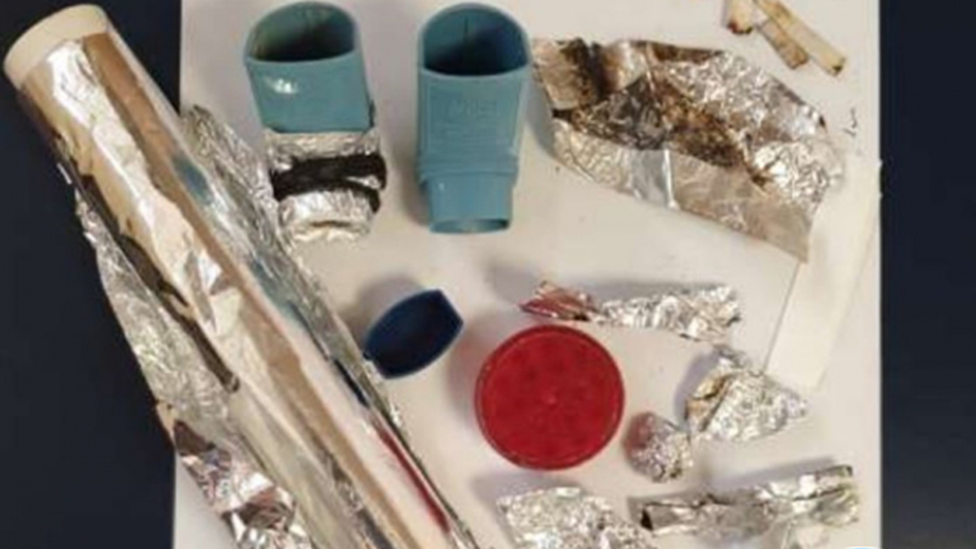
The trial heard one of Hakeem's inhalers had been repurposed for smoking drugs
Hakeem had been suffering from breathing difficulties and asthma since he was three years old and throughout his life authorities were concerned about his medical condition and how it was being mismanaged at home, the court was told.
At the time of his death, he had not been able to access his preventative inhaler for two days as it was left uncollected by his mother at his home on nearby Long Acre.
There had been a series of warnings regarding Hakeem's safety over the previous two years.
Just two days before his body was found, a nurse at his school told a safeguarding panel he would die "by the weekend" if action was not taken.
The court heard that during a meeting on the Friday before his death, health, education, and social workers voted to act to protect Hakeem, and a conversation with Heath was expected to take place after the weekend.
Hakeem died on the Sunday.

Analysis
By Phil Mackie, BBC Midlands correspondent
At the time of Hakeem's death, Birmingham Children's Services had already been rated inadequate for nearly a decade, during which time more than a dozen children known to the authorities died, including seven-year-old Khyra Ishaq, who starved to death, two-year-old Keanu Williams, who was murdered by his mother and Keegan Downer, aged 18 months, whose guardian killed her.
Six months after Hakeem died, a new trust was appointed to take over, and since then inspections have shown things have improved.
A serious case review Hakeem's death will be published within the next two months, but new systems have been already put in place to help minimise the risk of another death like Hakeem's.
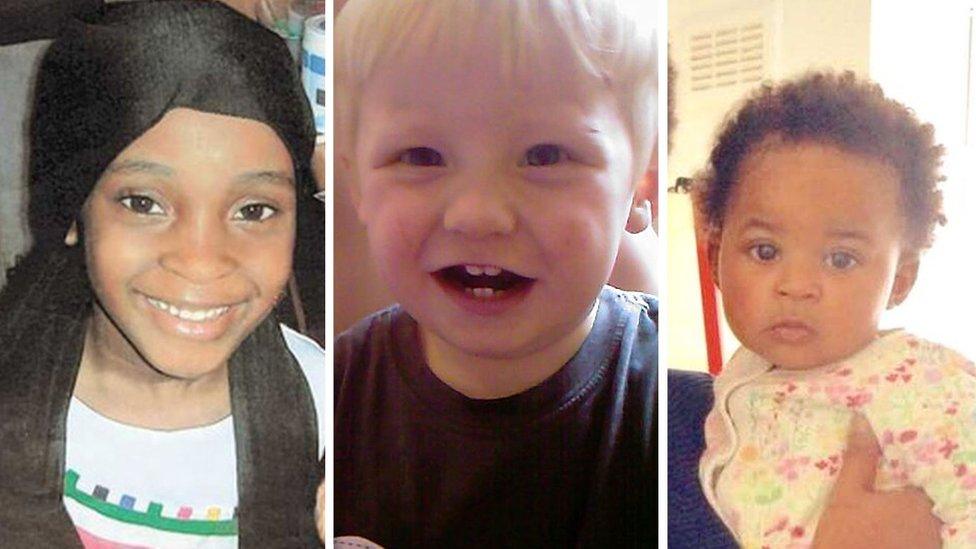
Khyra Ishaq, Keanu Williams and Keegan Downer were among more than a dozen children known to agencies in Birmingham before their deaths

Birmingham Children's Trust said there had been "clear missed opportunities" by social workers in Hakeem's case.
Its chief executive, Andy Couldrick, said: Hakeem "was saying some things to people that we should all have heard and listened to and acted on more swiftly and with greater urgency".

Follow BBC West Midlands on Facebook, external, Twitter, external and Instagram, external. Send your story ideas to: newsonline.westmidlands@bbc.co.uk, external
Related topics
- Published28 April 2022
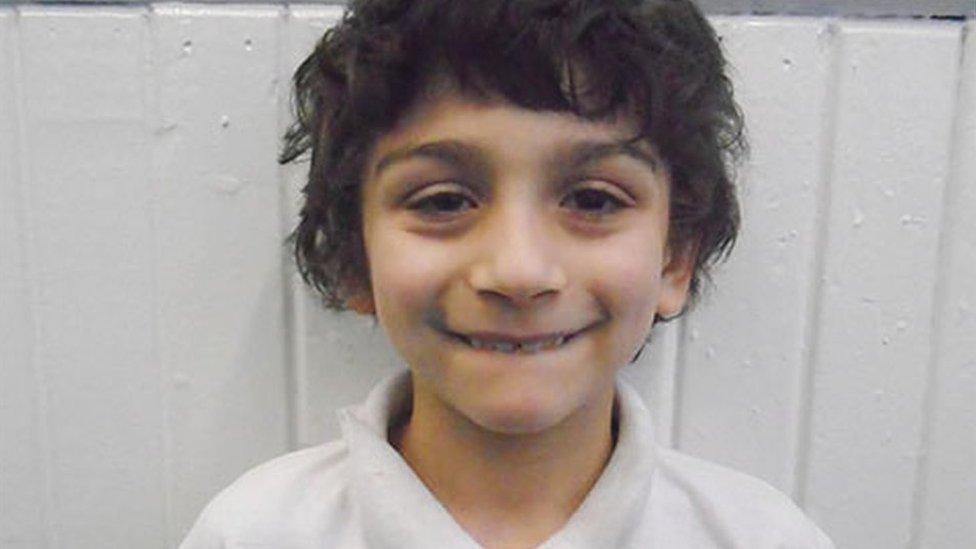
- Published22 April 2022
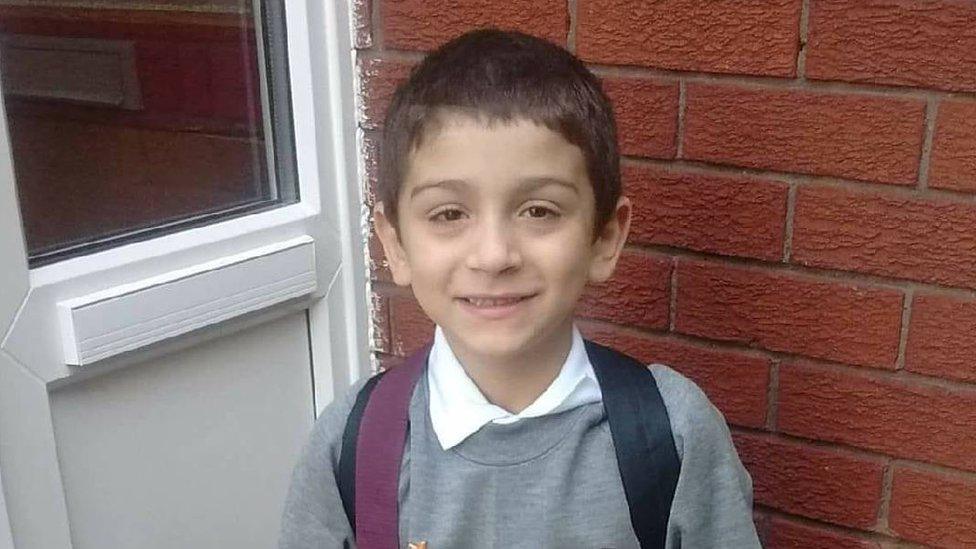
- Published5 April 2022

- Published28 March 2022

- Published19 August 2021
